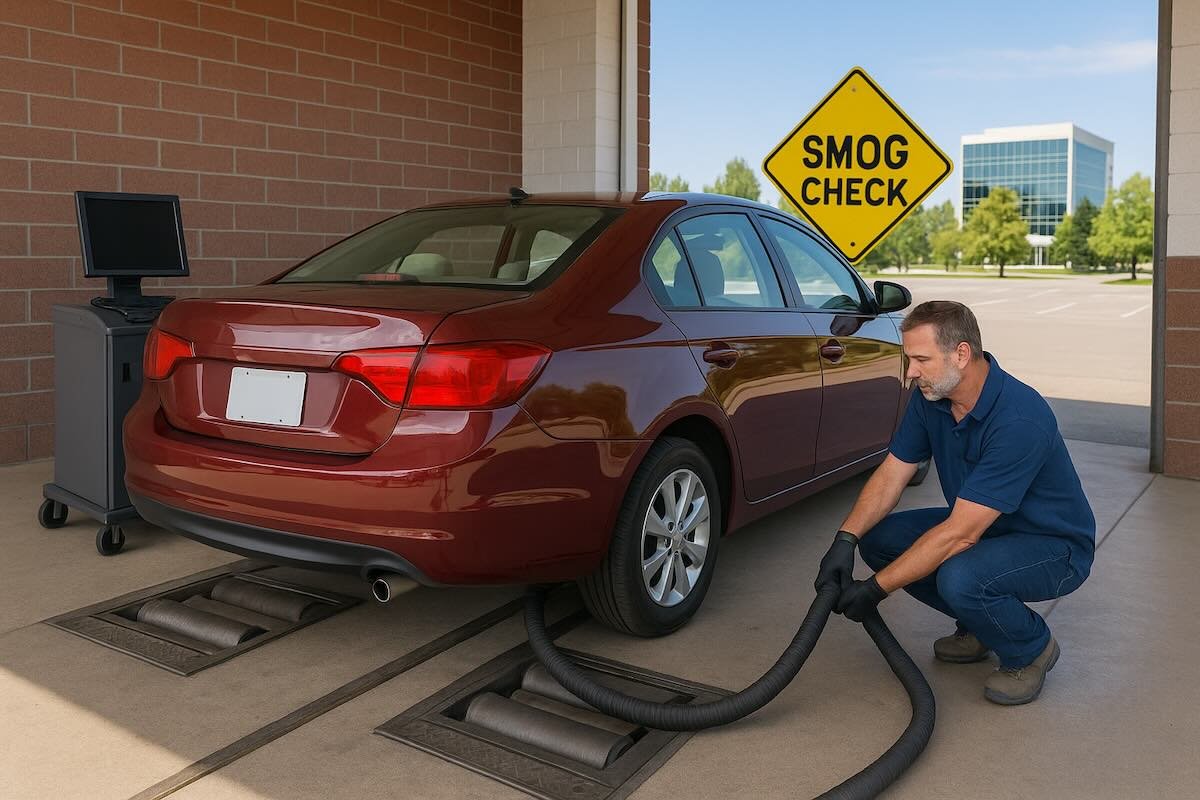Is a Smog Check Required in Colorado?
If you own a vehicle in Colorado, you may be wondering whether a smog check—officially known as an emissions test—is required. The answer depends on where you live and the type and age of your vehicle. This guide breaks down what you need to know about emissions testing in Colorado, including where it's required, who needs it, and how to stay compliant.
Do You Need an Emissions Test in Colorado?
Yes, emissions testing is required in several counties across Colorado. These tests are part of the state's effort to meet federal clean air standards and reduce vehicle-related pollution. While not all areas require testing, many along the Front Range do.
Counties in Colorado That Require Emissions Testing
Smog checks are mandatory in the following counties:
Denver
Boulder
Broomfield
Douglas
Jefferson
Portions of the following counties also require testing:
Adams
Arapahoe
Larimer
Weld
These regions have higher vehicle densities and are more prone to air quality issues, making emissions testing a critical tool for pollution control.
Which Vehicles Need a Smog Check?
Whether or not your vehicle requires a smog check depends on the fuel type, age, and classification.
Gasoline Vehicles
New vehicles: Exempt for the first 7 model years
1982 and newer: Tested every 2 years after the exemption
1981 and older: Tested annually
Diesel Vehicles
New diesel vehicles: Exempt for the first 4 model years
2008 and newer light-duty diesels: Tested every 2 years
2007 and older light-duty diesels: Tested annually
Hybrid Vehicles
Model year 2010 and older: Tested every 2 years
Newer hybrids: Exempt
Electric Vehicles
Fully electric vehicles are exempt from all emissions testing requirements.
Collector Vehicles
1975 and older: Exempt if registered as collector’s items
1976–1985: May be exempt if registered as collector vehicles before September 1, 2009
When Is an Emissions Test Required?
You may be required to get a smog check in several situations:
Registration Renewal: If your vehicle falls outside the exemption window, you’ll need a test before renewing.
Change of Ownership: A smog check is often needed when buying or selling a vehicle.
New Residents: If you move to an emissions area, your vehicle must pass a test before registration.
Daily Commuters: If you commute into an emissions area 90 or more days per year, testing is required—even if you live in a non-testing zone.
Emissions Testing Options in Colorado
Colorado operates most of its emissions testing through the Air Care Colorado program. Facilities are located throughout the Denver Metro and Northern Front Range areas. Additionally, the RapidScreen roadside testing program may qualify your vehicle for a drive-by test exemption if it passes the test twice in a 12-month period.
What Happens If You Don’t Get a Required Emissions Test?
Failing to comply with emissions testing requirements can lead to:
Registration Denial: You won’t be able to renew your tags.
Late Fees: A 30-day grace period applies, but fees of $25 per month (up to $100) kick in after that.
Costly Repairs: Failing a test requires repairs to bring your vehicle into compliance. In some cases, cost waivers may be available if expenses exceed specific thresholds.
Final Thoughts
Colorado’s emissions testing program plays a vital role in maintaining the state’s air quality. If you live in or commute through an emissions testing area, understanding these requirements is essential. Staying up to date not only helps the environment but also keeps you in compliance and avoids costly registration issues.

